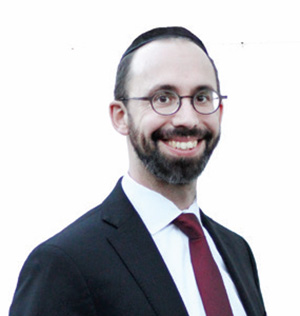
Korach, Dasan and Aviram. Not exactly top-tier names when a baby boy is born. Indeed, within the Chumash, these names are nothing short of synonymous with utter discord and defiance. In Sefer Bamidbar, we are introduced to many individuals and groups who act in extremely abhorrent ways, yet the Baalei Mussar refer to Sefer Bamidbar as Sefer Hamidos, the sefer that teaches us the proper rules of conduct.
We interact with people all day. Very often, we encounter individuals with whom we do not get along. Yet, our lives are governed by the Torah, which demands a higher level of conduct, recognizing at each moment that all human beings are created in the image of Hashem.
The most enigmatic people in this week’s parsha are surely Dasan and Aviram. They have a long history of causing trouble. Our first introduction to them is when Moshe encountered the pair in the midst of a quarrel. Moshe screams, “Rasha, lama sakeh rei’acha, Wicked man—why do you strike your friend?” (Shemos 2:13) Their response is even more shocking. “Hal’hargeini… Will you kill us like the Mitzri you murdered yesterday?” insinuating that they are going to report Moshe to the authorities. It is hard to imagine such a level of insolence. Moshe says, “Achen noda hadavar—Now the matter is known.“ (Shemos 2:14) Rashi tells us Moshe was saying that he now knew why the Bnei Yisrael were in galus, exile, since there were informers! And indeed, they did report Moshe to the authorities, causing Moshe to flee from Mitzrayim to Midyan to escape certain execution.
One would assume that this wicked duo perished during the plague of darkness when 4/5ths of the Jewish people who were not deserving of being taken out of Egypt died. Yet, much to our surprise, they survived. Why?
Rav Shimon Schwab explains the mystery. Because Dasan and Aviram believed in Hashem and stood at Har Sinai and said Na’aseh V’nishma, we will do and we will hear, they merited to be taken out of Mitzrayim. Nonetheless, they had a personal issue with Moshe Rabbeinu. They felt he was improperly usurping all the power, which should have been shared with others (including them, of course!). Rav Schwab suggests they were also angry with Moshe as a result of having been punished with poverty for informing on Moshe (Gemara Nedarim).
So, here we have Dasan and Aviram, who have a personal vendetta against Moshe. Our normal inclination is to focus on the negative behaviors of Dasan and Aviram, so that when similar situations arise, we will know what conduct needs to be avoided.
However, doing this alone potentially has a great pitfall. Do you remember telling yourself that you definitely will not copy certain negative language or actions of your teachers and parents? Yet, much to your surprise, you find yourself as an adult or parent doing and saying those exact things! Why is that? Rav Wolbe, zt”l, tells us that when a challenging situation arises, most of the time our brains cause us to react automatically based on past experiences, even if those experiences are negative. The only way to ensure a positive response is to affirmatively replace the bad reactions with the proper reactions. How? One excellent way is to watch talmidei chachamim—to be trained by their actions, rather than go on auto-pilot and be governed by negative experiences and environmental influences.
If we focus on how Moshe interacted with these instigators, we will be surprised to see the extent of how we are expected to treat and interact positively with those with whom we do not get along.
Despite the treachery of Dasan and Aviram in reporting Moshe to Pharaoh and challenging his power, Moshe appointed them as kri’ei ha’eida—leaders of assembly, who are seated in front at all public gatherings. Moshe, the leader of the Jewish people, also tried to dissuade them from taking part in the dispute regarding his power, even going to their tent. Rashi tells us from here we learn that one needs to take positive action to put an end to any disagreement. Moshe did so even after Dasan and Aviram responded with unprecedented insolence, saying, “Even if you would poke out our eyes we will not come speak with you!” (Korach 16:14)
Moshe Rabbeinu is teaching us how one must treat the other party in a disagreement. One must place his personal honor and pride aside and accord the other party honor and respect in trying to settle the dispute!
May Hashem help us train ourselves to act and treat all people with the honor they deserve, and to learn from appropriate role models.
By Rabbi Baruch Bodenheim
Rabbi Baruch Bodenheim is the associate rosh yeshiva of Passaic Torah Institute (PTI)/Yeshiva Ner Boruch. PTI has attracted people from all over northern New Jersey, including Teaneck, Bergenfield, Paramus, Rockaway and Fair Lawn. He initiated and continues to lead a full multi-level gemara learning program in the evenings, gives halacha and hashkafah shiurim on Shabbat and, more recently, has spread out beyond PTI to begin a weekly Beit Medrash program with in-depth chavruta learning in both Livingston and Springfield, New Jersey.










